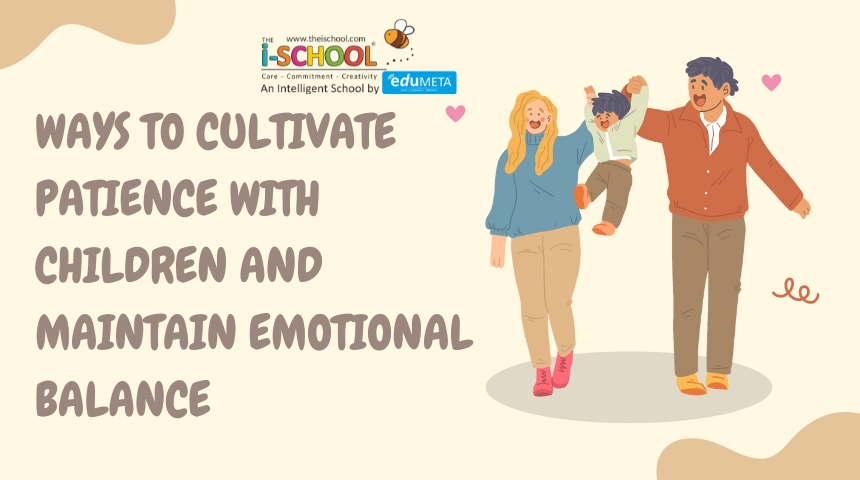Ways to Cultivate Patience with Children and Maintain Emotional Balance

Parenting is a rewarding journey filled with joyful moments, but it also comes with challenges that test your patience and emotional balance. Whether you’re dealing with a toddler’s tantrum or guiding a preteen through a difficult phase, maintaining your calm is essential for both your well-being and your child’s development. Here are some effective ways to cultivate patience with children and maintain emotional balance.
1. Understand the Root Causes of Impatience
Recognizing why you might be losing patience is the first step to managing it. Common triggers include fatigue, stress, or unmet expectations. When you feel your patience slipping, take a moment to identify what’s causing it. Understanding your triggers can help you respond more calmly in challenging situations.
2. Practice Deep Breathing Techniques
Deep breathing is a simple but powerful tool to help you stay calm. When you feel overwhelmed, pause and take a few deep breaths. Inhale slowly through your nose, hold the breath for a moment, and then exhale slowly through your mouth. This technique can help reset your nervous system, allowing you to approach the situation with a clearer mind.
3. Set Realistic Expectations
Children are still learning how to navigate the world, and they’ll make mistakes along the way. Setting realistic expectations for your child’s behavior can prevent frustration. Remember that they’re still developing their social, emotional, and cognitive skills. Patience comes easier when you accept that progress takes time.
4. Create a Calm Environment
Your environment can significantly impact your emotional state. A cluttered, noisy space can add to your stress levels. Try to create a calm and organized home environment where you and your child can feel at ease. Soft lighting, soothing colors, and a tidy space can help you maintain your emotional balance.
5. Use Positive Reinforcement
Encouraging good behavior with positive reinforcement is more effective than responding negatively to unwanted behavior. Praise your child when they show patience or handle a situation well. This not only boosts their self-esteem but also encourages them to repeat the behavior, reducing the need for you to step in with discipline.
6. Take Time for Self-Care
You can’t pour from an empty cup. Ensuring that you take care of your own needs is crucial for maintaining patience and emotional balance. Make time for activities that rejuvenate you, whether it’s reading a book, exercising, or simply enjoying a quiet cup of tea. When you’re well-rested and relaxed, you’re better equipped to handle parenting challenges.
7. Practice Mindfulness with Your Child
Mindfulness isn’t just for adults—children can benefit from it too. Spend a few minutes each day practicing mindfulness exercises with your child, such as focusing on their breath or being present in the moment. This practice can help both of you develop greater patience and emotional awareness.
8. Establish Consistent Routines
Children thrive on routines, and having a predictable schedule can minimize stress and impatience. A consistent routine helps children know what to expect, reducing the likelihood of tantrums and frustration. It also helps you manage your time more effectively, reducing stress.
9. Learn to Let Go of Control
Not everything will go according to plan, and that’s okay. Sometimes, the best way to maintain emotional balance is to let go of the need for control. Accept that mistakes will happen and that not every situation requires immediate intervention. Giving your child some independence can also help them develop patience and problem-solving skills.
10. Seek Support When Needed
Parenting is challenging, and it’s okay to seek support when you need it. Whether it’s talking to a partner, a friend, or a professional, sharing your experiences and getting advice can help you maintain your emotional balance. Remember, you don’t have to do it all on your own.
Conclusion
Cultivating patience with children and maintaining emotional balance is an ongoing process that requires practice and self-awareness.
